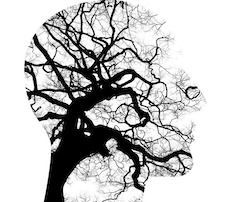Stewardship of Self for Christian Workers: Anxiety
- Approximate Time Commitment: 15 minutes
- Labels: Free
Brochures in this series contain self-help information for missionaries. Each brochure emphasizes practical things missionaries may do for specific problems in the absence of professional help.
Ideally, one ought to consult a medical professional before making any lifestyle change to ensure that the change will not be detrimental to existing conditions or treatments. However, some Christian workers have limited access to mental health professionals.
Resource Description
Article
After all that Jesus said about not worrying in Luke 12 and all that Paul wrote to the Philippians about not being anxious (4:6), one would think that Christian workers certainly would not suffer from anxiety. However, such is not the case as evidenced by Paul himself.
Paul wrote, “When I could stand it no longer, I sent to find out about your faith. I was afraid that in some way the tempter might have tempted you and our efforts might have been useless” (1 Thessalonians 3:5 NIV). He sent Timothy back to find out how they were doing.
Paul also wrote, “I think it necessary to send back to you Epaphroditus … so that when you see him again you may be glad and I may have less anxiety” (Philippians 2:25-28 NIV).
After a long list of stressful events, he also wrote, “Besides everything else, I face daily the pressure of my concern for all the churches (2 Corinthians 11:28 NIV). Paul clearly had some “concerns,” “fears,” and “anxieties,” so Christians may experience these emotions, but we are not to continue in worry. We can do something to alleviate these emotions.
How do I know if I have an anxiety disorder?
Although some fear and anxiety are a normal part of life and Christians are given ways to respond to them (Philippians 4:6), sometimes fears and anxieties become overwhelming, interfering with a person’s life. The person may find no obvious cause and neither may friends or family. These anxiety disorders can take a variety of forms.
- If you have worried about things excessively during most days over the past six months and those worries keep you from focusing on what you are doing because you are on edge, tense, irritable, unable to concentrate, and have problems sleeping, you may have generalized anxiety disorder.
- If more than once you have had spells when for no reason you suddenly felt extremely anxious, frightened, uncomfortable, or uneasy even in situations when most people would not feel that way and you had a continuing fear that another attack would occur, you may have a panic disorder.
- If during the last month you have had a fear of something that most people would not find frightening to the extent that you avoid those things and it disrupts your normal functioning or is distressing to you, you may have a phobic disorder.
- During the past month if you have been bothered by repeated thoughts or impulses that were unwanted, distasteful, or distressing and you could not get rid of them but had to carry them out, you may have an obsessive-compulsive disorder.
- If you have witnessed or experienced a traumatic event that included or threatened death or serious injury and you have re-experienced the event in a distressing way so that you avoid things that remind you of it and your reactions interfere with your normal activities, you may have a stress disorder.
Although it will not give a “professional diagnosis” of the anxiety disorders, questionnaires at the following web site will help you determine if you may need to see a mental health professional:www.mentalhealth.com/fr71.html.
Only logged in customers who have purchased this product may leave a review.



Reviews
There are no reviews yet.